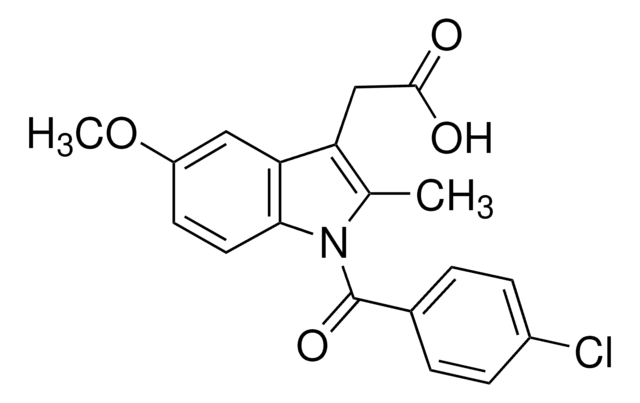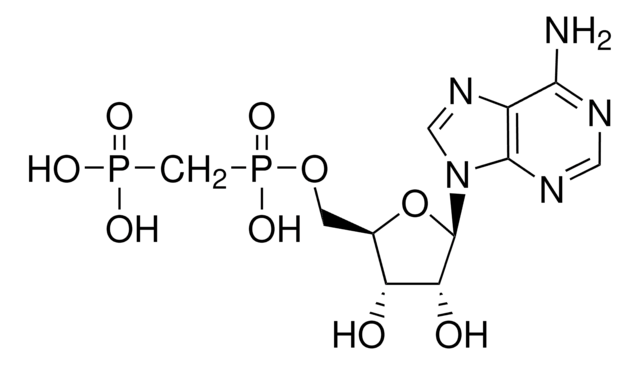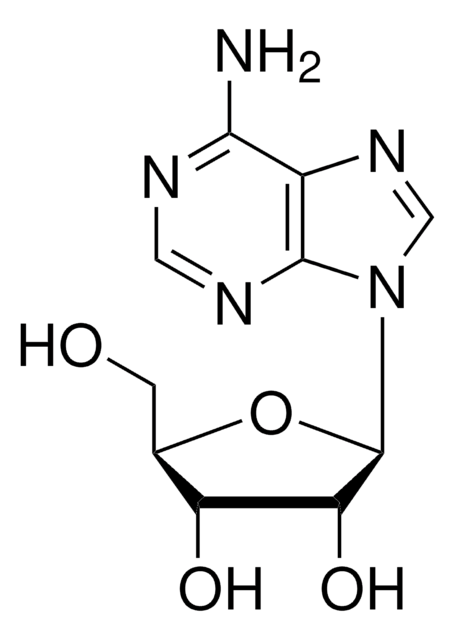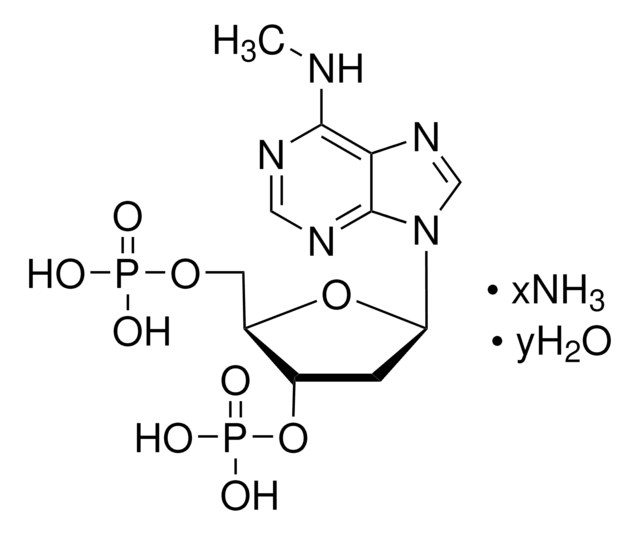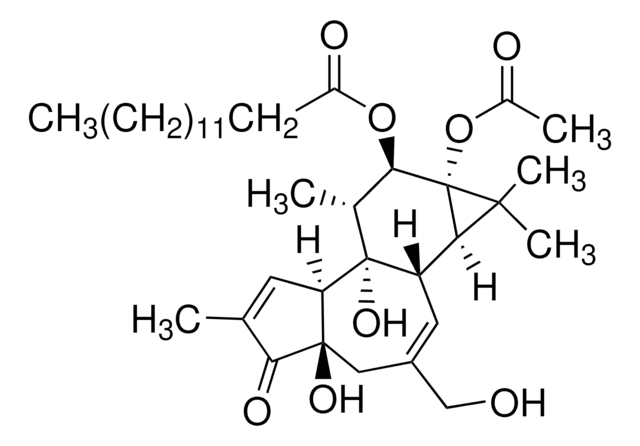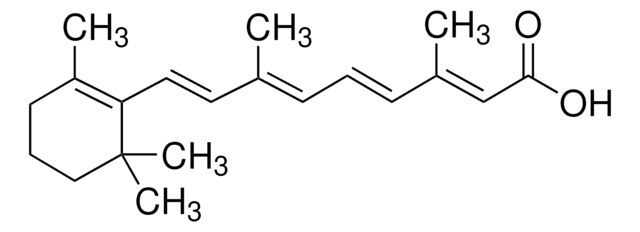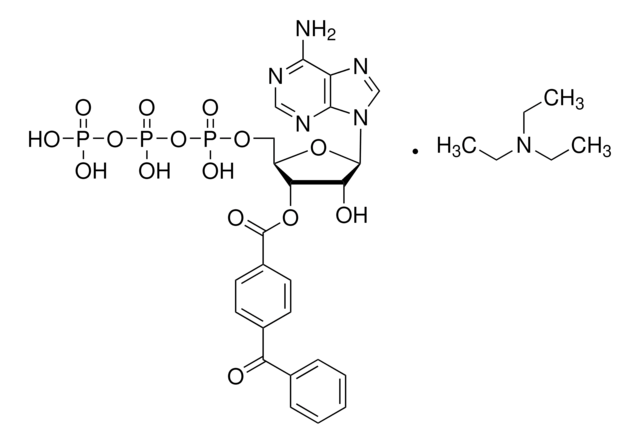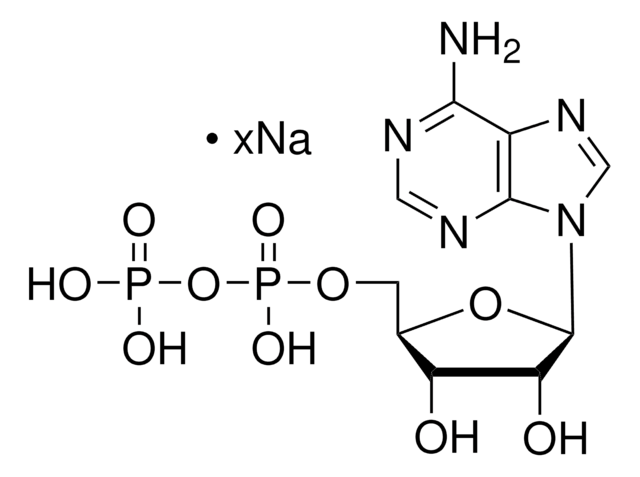M1434
2-Methylthioadenosine 5′-monophosphate triethylammonium salt hydrate
solid, ≥98% (HPLC)
Synonym(s):
2-MeSAMP, 2-Methylthio-AMP triethylammonium salt hydrate
About This Item
Recommended Products
Quality Level
assay
≥98% (HPLC)
form
solid
storage condition
desiccated
color
white
solubility
H2O: 20 mg/mL, clear, colorless
storage temp.
−20°C
SMILES string
O.CCN(CC)CC.CSc1nc(N)c2ncn([C@@H]3O[C@H](COP(O)(O)=O)[C@@H](O)[C@H]3O)c2n1
InChI
1S/C11H16N5O7PS.C6H15N.H2O/c1-25-11-14-8(12)5-9(15-11)16(3-13-5)10-7(18)6(17)4(23-10)2-22-24(19,20)21;1-4-7(5-2)6-3;/h3-4,6-7,10,17-18H,2H2,1H3,(H2,12,14,15)(H2,19,20,21);4-6H2,1-3H3;1H2/t4-,6-,7-,10-;;/m1../s1
InChI key
YQMUWWZKFZERBT-IDIVVRGQSA-N
Related Categories
Application
- as a P2Y12 inhibitor to study its effects on stimulation of endocytosis in high-density lipoprotein (HDL).
- as a P2Y12 inhibitor to study its effects on platelet recruitment in whole human blood.
Biochem/physiol Actions
wgk_germany
WGK 3
flash_point_f
Not applicable
flash_point_c
Not applicable
ppe
Eyeshields, Gloves, type N95 (US)
Certificates of Analysis (COA)
Search for Certificates of Analysis (COA) by entering the products Lot/Batch Number. Lot and Batch Numbers can be found on a product’s label following the words ‘Lot’ or ‘Batch’.
Already Own This Product?
Find documentation for the products that you have recently purchased in the Document Library.
Customers Also Viewed
Our team of scientists has experience in all areas of research including Life Science, Material Science, Chemical Synthesis, Chromatography, Analytical and many others.
Contact Technical Service